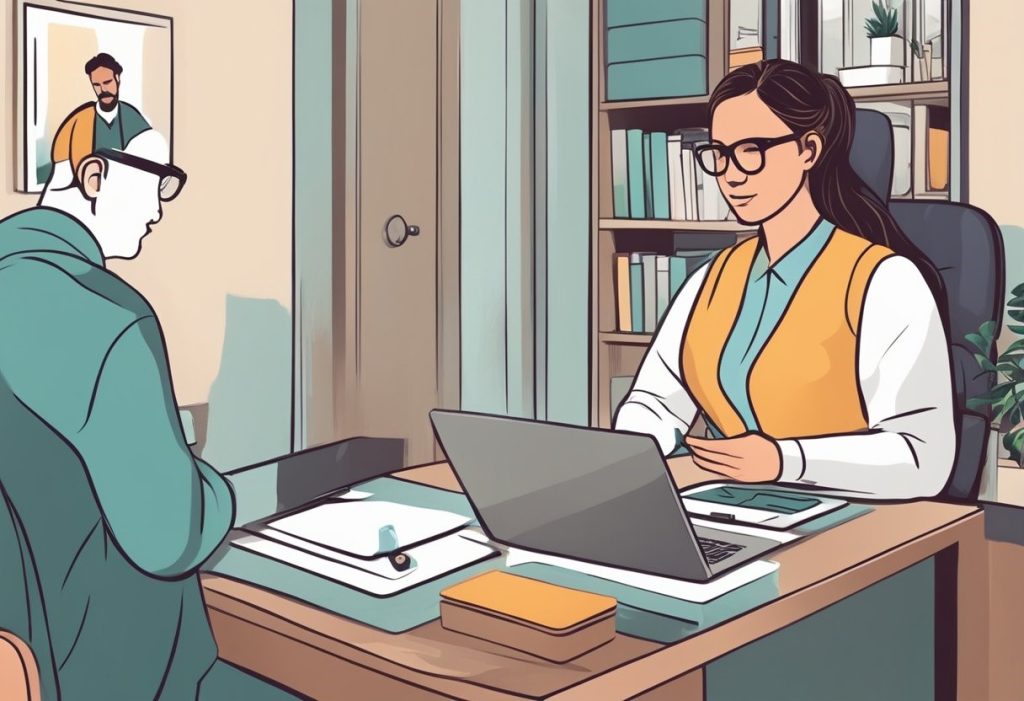
Online therapy has become increasingly popular in recent years, with many people seeking the convenience and accessibility of virtual sessions. This trend has also extended to those seeking treatment for obsessive-compulsive disorder (OCD), with the rise of OCD therapists offering their services online.
OCD is a mental health disorder that affects millions of people worldwide, characterized by intrusive thoughts and repetitive behaviors that can significantly impact daily life. While traditional in-person therapy has been the primary mode of treatment for OCD, the advent of online therapy has opened up new possibilities for those seeking help.
Online OCD therapy offers several advantages, including greater flexibility in scheduling, reduced travel time and costs, and the ability to access treatment from the comfort of one’s own home. Additionally, online therapy can be particularly beneficial for those with severe OCD symptoms who may struggle with leaving their home or engaging in face-to-face interactions. As such, the availability of OCD therapists online has become an increasingly valuable resource for those seeking treatment.
Understanding OCD and Online Therapy
Defining OCD
Obsessive-Compulsive Disorder (OCD) is a mental health disorder characterized by persistent, intrusive thoughts (obsessions) that lead to repetitive behaviors (compulsions) aimed at reducing anxiety. It is a chronic condition that affects millions of people worldwide, and it can significantly impact their quality of life.
Benefits of Online Therapy for OCD
Online therapy has become increasingly popular in recent years, and it is a viable treatment option for individuals with OCD. Here are some benefits of online therapy for OCD:
- Accessibility: Online therapy makes it easier for individuals with OCD to access treatment, regardless of their location. They can receive therapy from the comfort of their own homes, eliminating the need for travel and reducing the associated costs.
- Convenience: Online therapy offers greater flexibility than traditional therapy, as individuals can schedule their sessions at a time that works best for them. This is particularly beneficial for individuals with busy schedules or those who live in remote areas.
- Anonymity: Online therapy provides a level of anonymity that traditional therapy cannot match. This can be particularly helpful for individuals with OCD who may feel embarrassed or ashamed of their symptoms.
- Evidence-Based: Online therapy for OCD is based on evidence-based treatments, such as Cognitive Behavioral Therapy (CBT) and Exposure and Response Prevention (ERP). These treatments have been shown to be effective in reducing OCD symptoms and improving quality of life.
Overall, online therapy is a valuable treatment option for individuals with OCD. It offers accessibility, convenience, anonymity, and evidence-based treatment, making it a viable alternative to traditional therapy.
Choosing the Right OCD Therapist Online
When seeking treatment for Obsessive-Compulsive Disorder (OCD), it’s important to find a qualified therapist who can provide effective therapy. With the rise of online therapy, there are now more options than ever before. However, choosing the right OCD therapist online can be a daunting task. Here are some tips to help you make an informed decision.
Qualifications to Look For
When searching for an OCD therapist online, it’s important to ensure that they have the necessary qualifications. Look for therapists who are licensed or certified in their field. This will ensure that they have the appropriate training and education to provide effective therapy.
Additionally, it’s important to find a therapist who has experience treating OCD specifically. Some therapists may have experience treating anxiety or other mental health conditions, but may not have specific training in treating OCD. Look for therapists who specialize in OCD treatment or who have extensive experience treating OCD.
How to Evaluate Therapist Reviews
Reading reviews from other patients can be a helpful way to evaluate a therapist’s effectiveness. However, it’s important to approach reviews with a critical eye. Some tips for evaluating therapist reviews include:
- Look for reviews from patients who have similar symptoms or experiences as you.
- Pay attention to the overall tone of the reviews. Are they generally positive or negative?
- Look for reviews that provide specific examples of how the therapist helped them.
- Consider the number of reviews and the overall rating. A large number of positive reviews can be a good sign, but it’s important to read individual reviews as well.
Remember that every patient’s experience is unique, so it’s important to take reviews with a grain of salt. Use them as one tool in evaluating a therapist, but don’t rely on them solely.
By following these tips, you can find a qualified and effective OCD therapist online. Remember that finding the right therapist may take time, but it’s worth the effort to find someone who can help you manage your symptoms and improve your quality of life.